Easter in France brings with it a plethora of traditions, customs, and celebrations that are steeped in history and culture. From the religious significance of Easter Sunday to the indulgence in delectable chocolate eggs, French Easter is a festival that is celebrated with much fervor and joy across the country.
No matter how old you are, no matter where you live in the world, this tradition is family and fun and it never gets old. For Christians, Easter is a day celebrating the resurrection of Christ. But for those who are not religious, it is still a glorious weekend filled with joy. So, let us learn some Fun Trivia & Interesting Facts About Easter In France
So, if you’re interested in learning more about the fascinating customs and events that make up Easter in France, then this blog post is for you! Here we present some interesting facts about French Easter that will give you an insight into this beloved holiday. So, sit back, relax, and enjoy discovering all about French Easter!
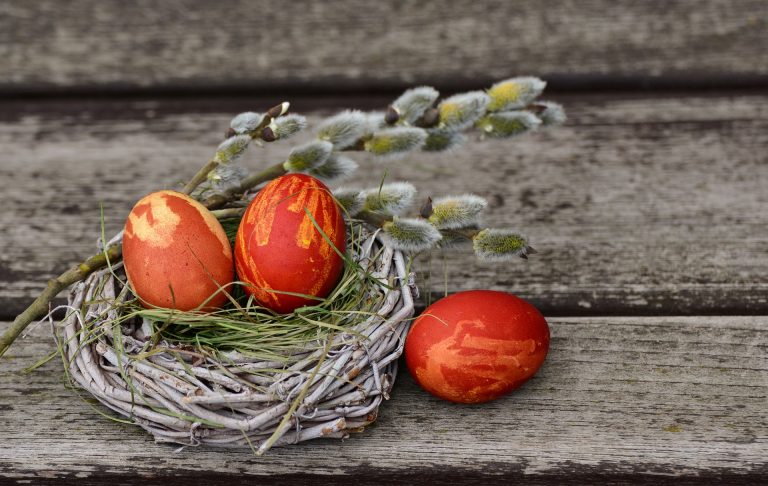
Table of Contents
Does France Celebrate Easter
France, like many other countries with strong Christian roots, does celebrate Easter. In fact, Easter is one of the most celebrated holidays in France, and it is observed in various ways throughout the country. French Easter traditions often include church services, large family gatherings, and lots of chocolate!
So, when exactly does France celebrate Easter? French Easter falls on the same day as Easter Sunday in other parts of the world, which is the first Sunday following the first full moon after the spring equinox. This means that the date of French Easter varies each year, usually falling somewhere between late March and mid-April.
During Easter weekend, the French enjoy a range of traditional dishes, including roast lamb, frittata with fresh herbs, and various types of bread and pastries. French Easter also involves a variety of symbolic decorations and gifts, such as colorful flowers, Easter eggs, and chocolate bunnies.
Despite its strong Christian roots, Easter in France is not exclusively a religious holiday. In fact, many people who do not practice Christianity still celebrate the holiday as a time of family togetherness and springtime festivities.
Overall, if you are planning to spend Easter in France, be prepared to indulge in delicious food, colorful decorations, and plenty of fun with loved ones. Whether you are religious or not, French Easter is definitely worth celebrating!
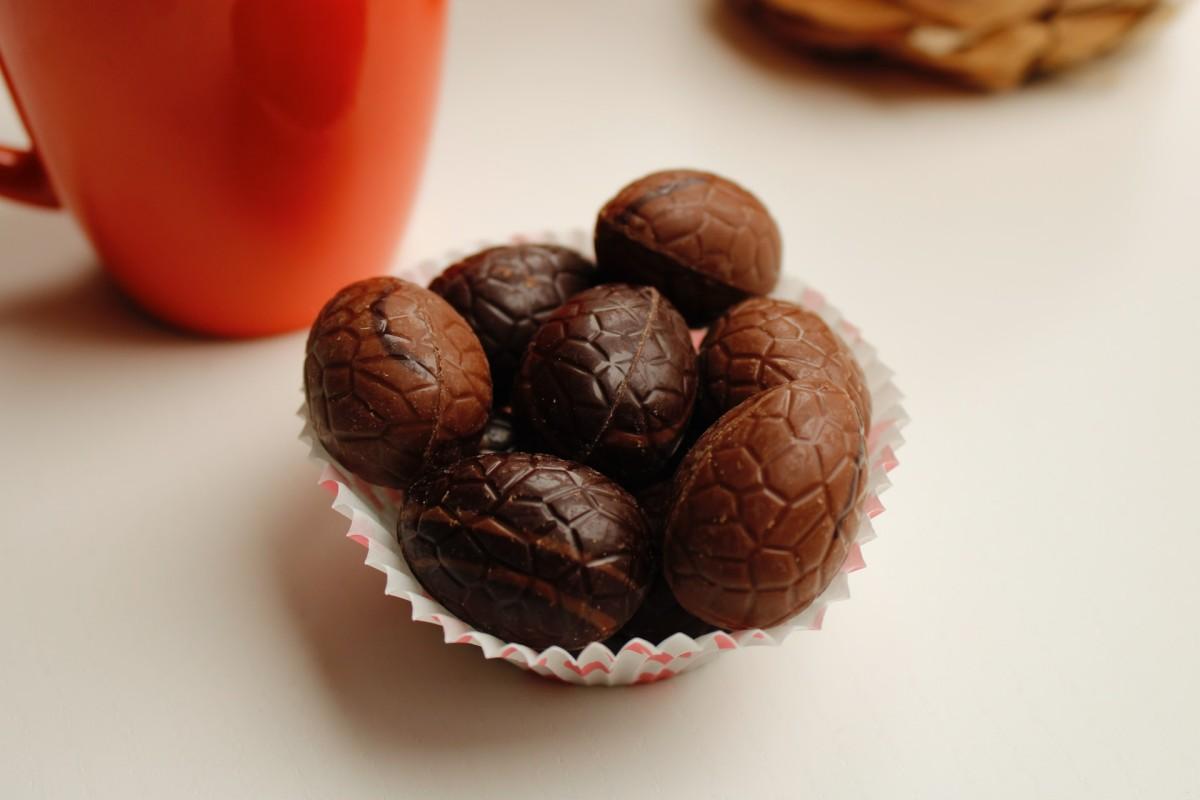
Easter Monday In France
Easter Monday In France is celebrated the day after Easter Sunday and is a public holiday in the country. People typically spend the day with family and friends, enjoying outdoor activities, picnics, or simply relaxing.
Many churches organize special services on Easter Monday, and some towns and villages hold Easter egg hunts or Easter fairs. The tradition of egg rolling is also popular in some parts of France, where people roll eggs down a hillside to symbolize the rolling away of the stone from Christ’s tomb.
People in France often prepare special foods for Easter Monday, such as leftover Easter eggs, omelets, and roast lamb. Families may also enjoy a traditional Easter cake, known as the “Gâteau de Pâques.”
In addition to the religious significance of Easter Monday, the holiday also marks the start of Spring and the beginning of the agricultural season in many regions of France. It is a time of renewal, growth, and hope.
Overall, Easter Monday in France is a time for celebration and reflection, a day to appreciate family, friendship, and tradition. Whether exploring the countryside or sharing a meal with loved ones, it is a time to embrace the joys of life and to remember the significance of Easter.
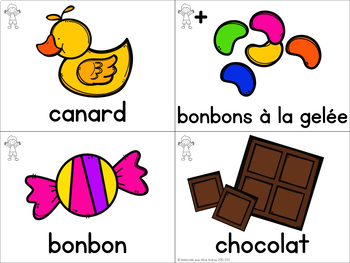
The Date of French Easter 2023
The date of French Easter is determined by the lunar calendar, and it often falls on a different day than Easter in other parts of the world. As mentioned earlier, Easter in France is celebrated on le Dimanche de Pâques (Easter Sunday), which is the day after Holy Saturday. This means that the date of Easter in France changes every year, but it usually falls between March 22nd and April 25th.
In addition to Easter Sunday, Easter Monday (Lundi de Pâques) is also a public holiday in France. This day is a time for families to relax and enjoy each other’s company after the busy Easter Sunday celebrations. It’s also a day for children to play and have fun, with many communities organizing Easter egg hunts and other activities.
Overall, French Easter is a unique and special holiday that holds great significance for the people of France. From the traditional symbols and foods to the religious and cultural connections, it’s a time for reflection, renewal, and rejoicing. Whether you’re a local or a visitor, taking part in French Easter celebrations is sure to be a memorable experience.
- This year 2023, Easter will happen on Sunday, April 9.
- Good Friday will this year come on Friday, April 7.
- Good Monday will be on Monday, April 10
- Ash Wednesday was on Wednesday, February 22.

Traditional Easter Symbols in France
Traditional Easter Symbols in France are an important part of the holiday celebrations. One of the most famous French Easter symbols are the Les Cloches de Pâques or the magical holy bells with little wings. These bells are said to fly over from Rome and bring Easter presents to children on Easter Sunday. Easter egg hunts are also a popular tradition in France, and they coincide with the story of the Flying Bells as the children have to wait for the bells to return before starting their hunt.
In addition to the bells and eggs, other traditional Easter symbols in France include the Easter lamb or L’Agneau Pascal. This is a roasted lamb dish that is typically served at Easter dinner. It represents the sacrifice of Jesus Christ, and it is a symbol of rebirth and renewal. It is also often served with green beans, which represent the resurrection and new life.
French Easter celebrations also feature other traditional decorations such as Easter trees, Easter wreaths, and Easter candles. The Easter tree, also known as the arbre de Pâques, is decorated with eggs and other Easter ornaments, and it represents the Tree of Life. The wreath, or couronne de Pâques, is also decorated with eggs and greenery, and it symbolizes the victory of life over death. Finally, the Easter candle or cierge pascal, represents the light of Christ and is lit during Easter services.
While many of these symbols have religious meanings, they are also incorporated into secular Easter celebrations in France. Overall, traditional Easter symbols in France are an essential part of the holiday and add a unique and magical element to the celebrations.
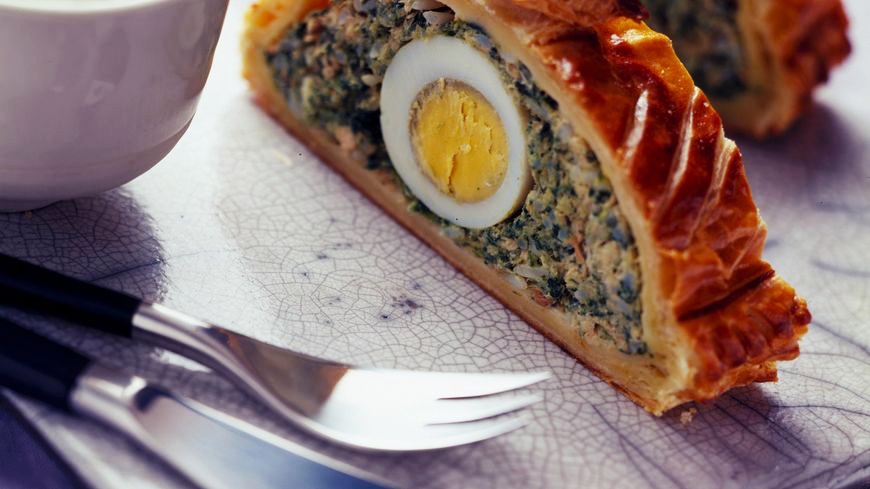
Common Easter Foods in France
In addition to the traditional chocolate eggs and bunnies, French Easter celebrations are also marked by a number of delicious seasonal dishes. One of the most common Easter foods in France is the “agneau pascal,” or Pascal lamb, which is a roasted leg of lamb that is traditionally served on Easter Sunday. Another popular dish is the “poulet de Bresse,” a free-range chicken that is considered a delicacy in France.
Aside from meat dishes, there are also a number of Easter treats that are enjoyed throughout the country. In Provence, for example, it is customary to serve a sweet brioche-like bread called “gâteau de Pâques,” which is often decorated with colored eggs. Another popular pastry is the “fouace,” a sweet bread made with aniseed that is popular in the Loire Valley.
Overall, French Easter is a time when families come together to enjoy a delicious meal and celebrate the holiday. From tender lamb and succulent chicken to sweet breads and pastries, there are plenty of delicious options to choose from. So whether you’re in France for Easter or simply looking to incorporate some French cuisine into your holiday celebrations, be sure to savor the flavors of this special time of year.
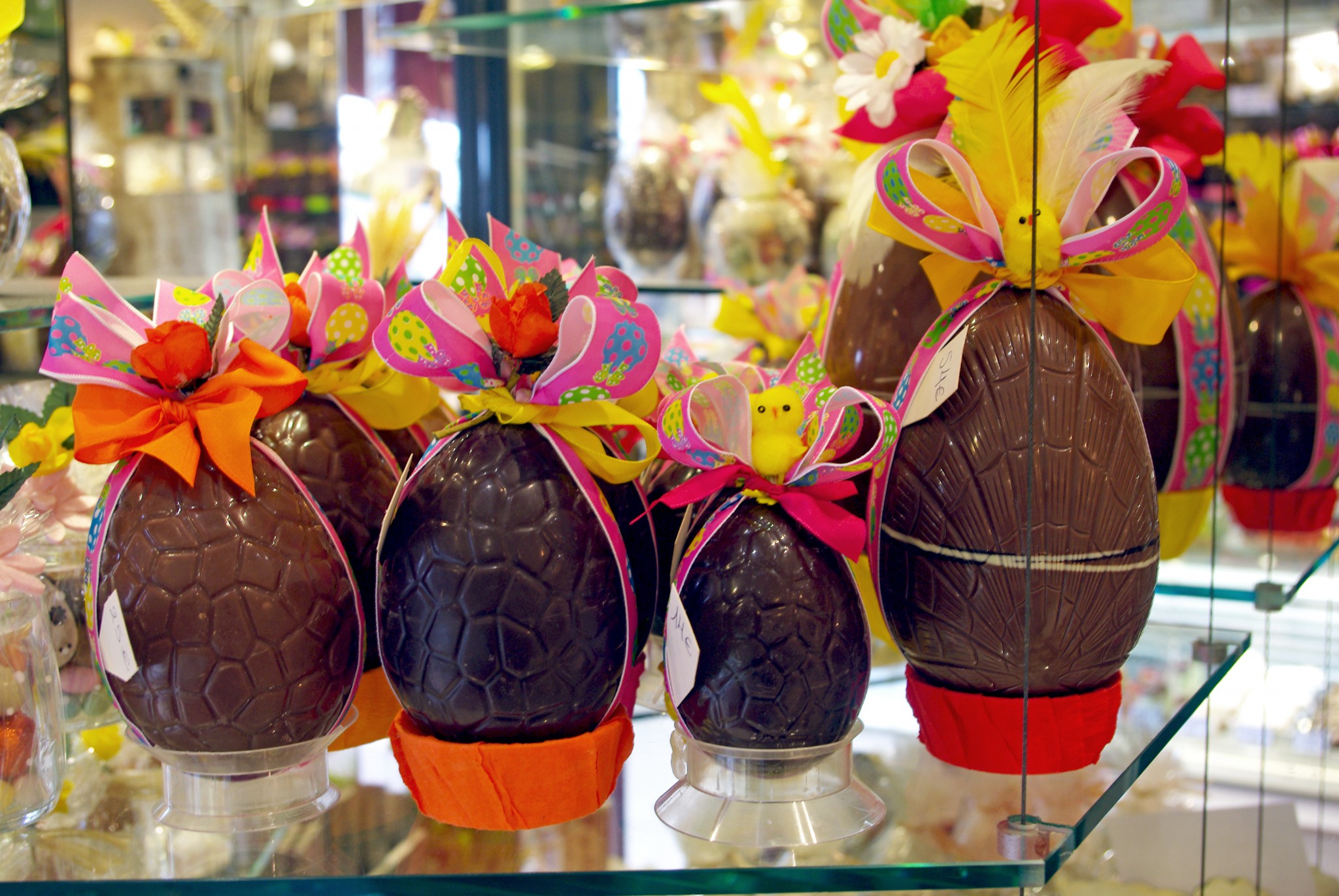
The significance of L’Agneau Pascal in French Easter
When it comes to celebrating Easter in France, one traditional dish stands out: l’Agneau Pascal. This dish, whose name comes from the French word for Easter, is a roasted leg of lamb that is typically served with fresh seasonal vegetables and roast potatoes. Its significance is deeply rooted in both French and Christian traditions.
For Christians, Easter symbolizes the resurrection of Jesus Christ. The lamb, which represents sacrifice and new life, is a significant symbol in the Christian faith. Thus, the act of roasting a lamb on Easter is a nod to this religious symbolism. In France, l’Agneau Pascal is often served as the centerpiece of the Easter meal, with families gathering together to share in its deliciousness.
But beyond its religious symbolism, l’Agneau Pascal is also significant in French culinary tradition. It is a dish that has been enjoyed for generations, with each family putting their own spin on the recipe. Whether slow-roasted with herbs and spices or served with rich sauces and savory side dishes, l’Agneau Pascal is a true celebration of French cuisine.
So, if you’re planning on celebrating Easter in France, be sure to include l’Agneau Pascal in your festivities. It’s a dish that is both deeply symbolic and wonderfully delicious, representing the best of French culture and tradition. And with a little bit of skill and patience in the kitchen, you can create a meal that is sure to be the highlight of your Easter celebrations.
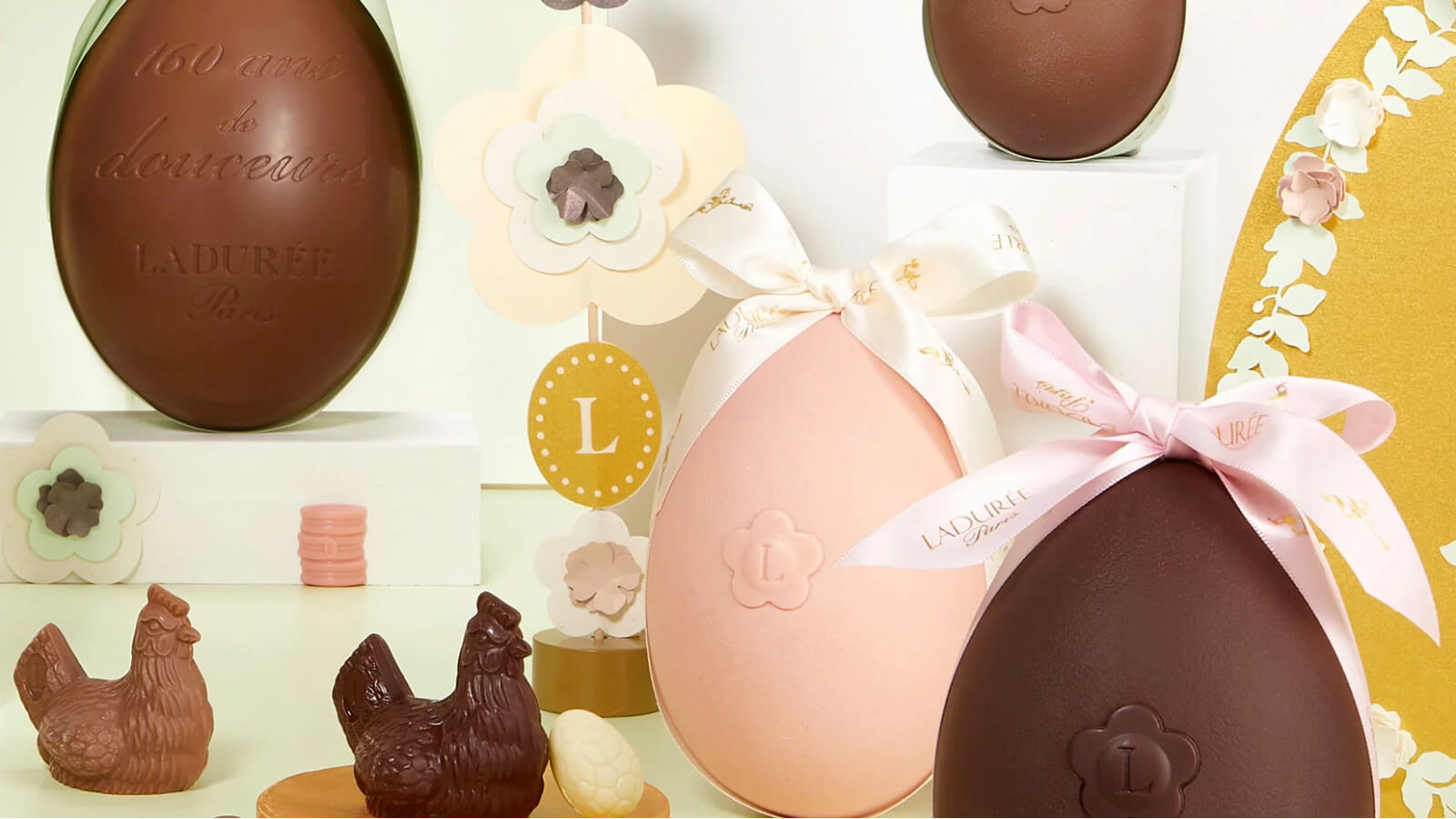
The Connection Between French Easter and Roman Catholicism
In France, Easter is not only a time for chocolate eggs and family gatherings, but it also holds a significant religious meaning for the Roman Catholic Church. The country’s deep-rooted Catholic tradition dates back to the first written records, and France has given birth to many Catholic saints, including St. Joan of Arc and St. Bernadette of Lourdes.
The celebration of Easter is one of the most important events in the Catholic calendar, marking the resurrection of Jesus Christ. In France, the Holy Week leading up to Easter is a time of solemn reflection, with many churches holding special services and processions.
One of the most important traditional symbols of Easter in France is the L’Agneau Pascal or Pascal Lamb. It is a symbol of sacrifice, with its origins in the Jewish Passover, and represents Christ as the “Lamb of God.” In some regions of France, it is customary to place a lamb-shaped butter or chocolate sculpture on the Easter table.
France is well-known for its beautiful cathedrals and other religious sites, such as the Notre-Dame Cathedral and the Basilique du Sacré-Cœur in Paris. These sites attract millions of visitors from around the world each year, and their history and architecture are testaments to the country’s strong Catholic tradition.
Despite some misconceptions about French Easter traditions, the connection between French Easter and Roman Catholicism is significant and deeply ingrained. It is a time for reflection, celebration, and the coming together of family and faith communities.

Misconceptions about French Easter Traditions
While Easter in France is celebrated in much the same way as it is in other Christian countries, there are a few misconceptions as to how it is observed by the French. One common misconception is that the Easter bunny is a popular symbol of the holiday in France. In reality, the Easter bunny is not a significant figure in French Easter traditions, and it is the bells, not the bunny, that is believed to bring Easter eggs to French children.
Another misconception is that French Easter celebrations largely involve attending church services. While attending church services is certainly a part of Easter celebrations in France, the holiday is also observed through other traditions such as Easter egg hunts and feasting with family and friends. Additionally, Easter Monday is a public holiday in France, and many people use the day to enjoy time off work and school with loved ones.
Finally, some people believe that Easter traditions in France are only observed by devout Catholics. However, while French Easter traditions do have strong roots in Roman Catholicism, they are also celebrated by many secular French individuals who view the holiday as an opportunity to spend time with their families and loved ones.
Understanding the true nature of French Easter traditions can help individuals from all backgrounds appreciate the significance and beauty of this important holiday. Whether it’s indulging in traditional Easter foods, learning new French Easter vocabulary, or participating in an Easter egg hunt with loved ones, there are many ways to enjoy the holiday in a way that is meaningful and true to its unique French origins.
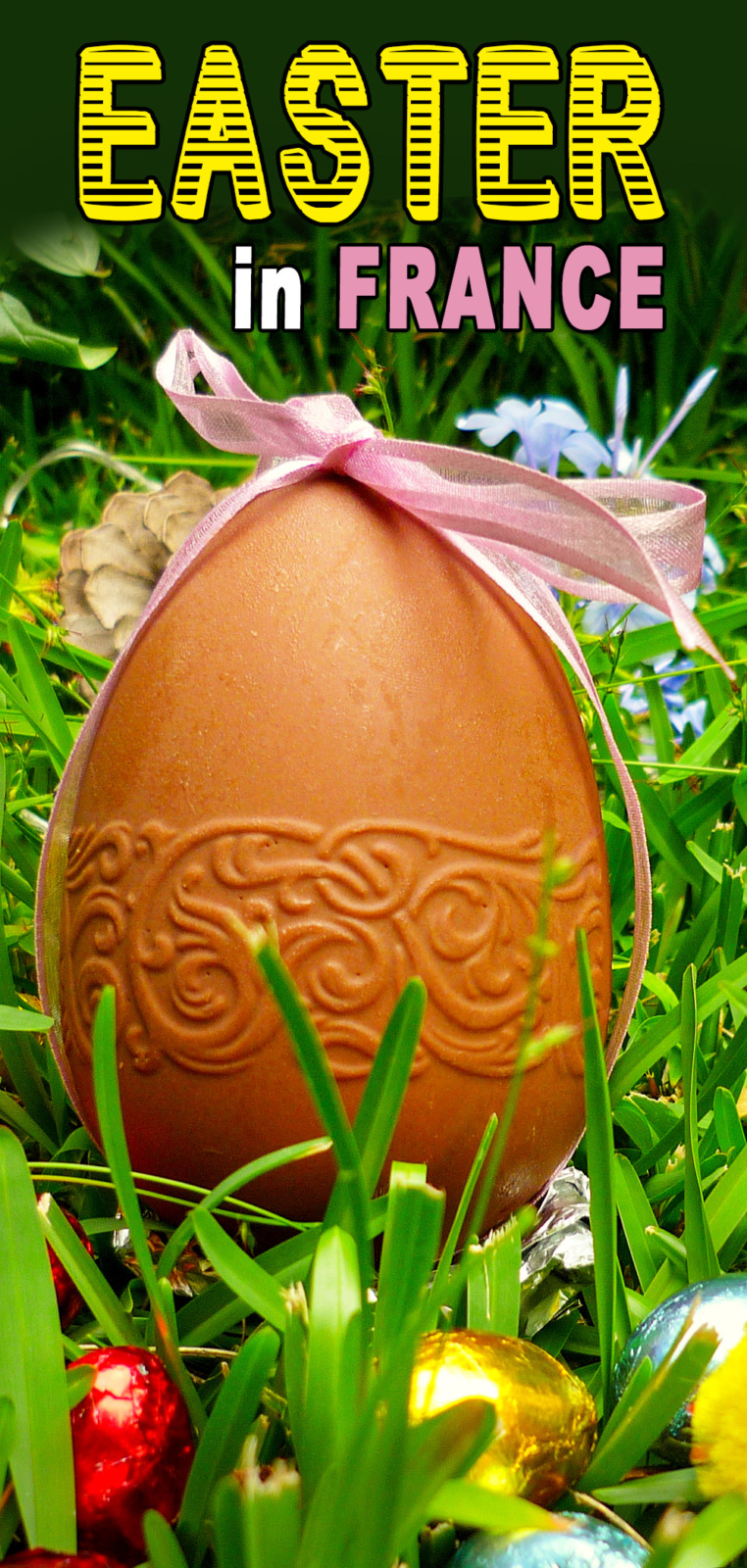
Facts About Easter In France
Facts About Easter In France:
If you are planning a trip to France in spring, it is essential to know the interesting facts about Easter in France. Firstly, the date of Easter in France is determined by the first full moon in spring, which usually falls on the first Sunday after. This has been a tradition in France for centuries.
One unique tradition associated with French Easter is the delivery of Easter presents by Les Cloches de Pâques, which are flying church bells. This tradition dates back to the belief that during the holy week, church bells in France would fly to Rome and return on Easter Sunday. When they return, they bring with them Easter eggs and other goodies that they drop for children to find on Easter morning.
In France, Easter celebrations are associated with several symbols, including spring flowers, lambs, birds’ eggs, and Easter eggs. These symbols represent nature’s rebirth or resurrection after the dark winter months. The age-old French custom of rolling raw eggs down a gentle slope is also a popular activity during Easter celebrations in the country.
No French Easter celebration is complete without traditional Easter foods on the table. Roast lamb, which is called L’Agneau Pascal in French, is a significant Easter dish in France for Christians. The lamb symbolizes the sacrificial lamb offered by God in the Old Testament to save His people. Other traditional French Easter foods include chocolate bunnies, pastries, and the “Gâteau Pascal,” which is a cake decorated with Easter symbols.
Lastly, it is essential to note that French Easter traditions have a close connection with Roman Catholicism. France, which is predominantly a Catholic country, follows the religious customs and traditions of the Vatican during Easter.
In conclusion, learning about the facts of Easter in France will give you a deeper understanding of the culture and religious beliefs in the country. With these traditions and delicacies, Easter in France is truly a wonderful experience worth experiencing.
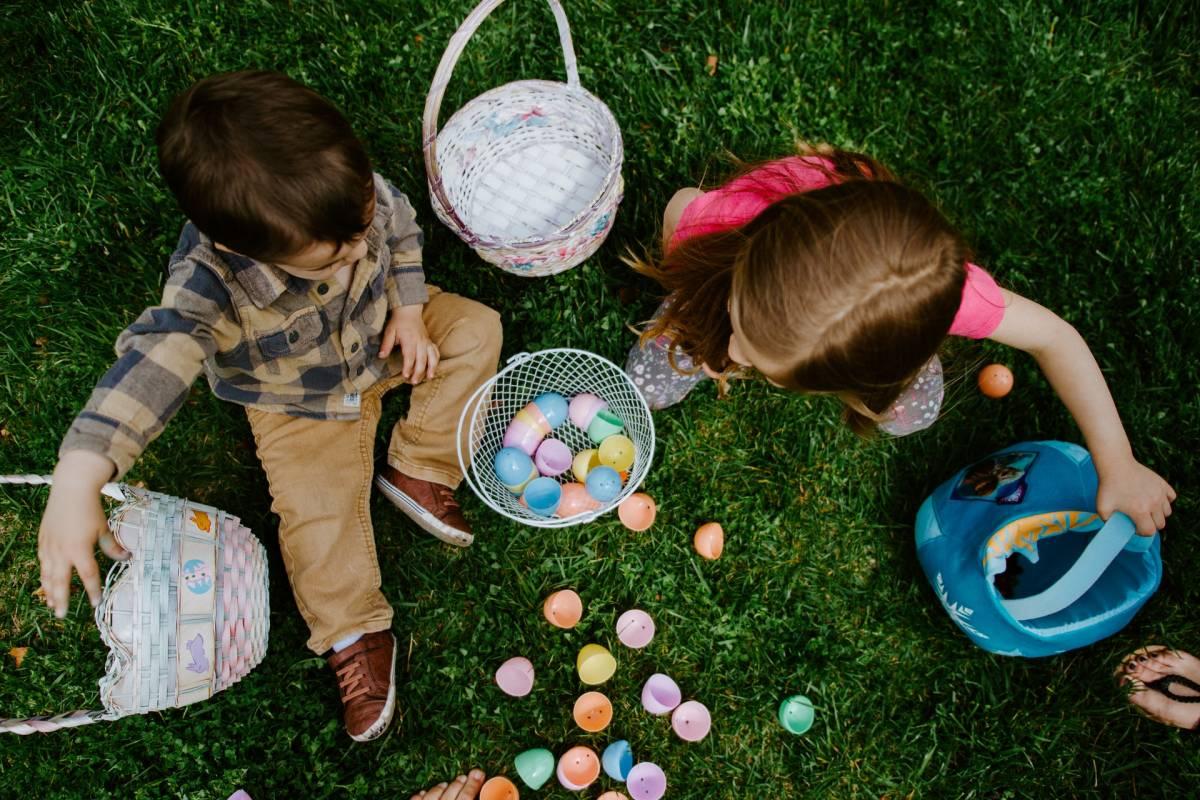
When Is Easter In France
Easter is one of the most popular Christian holidays celebrated across the world every year. However, the date of Easter in France, as in most countries, varies from year to year. In France, Easter Sunday is considered a public holiday, and it is known as Lundi de Pâques.
As previously highlighted, the date of the French Easter holiday depends on the first Sunday that follows the full moon that occurs on or after the Vernal Equinox. This means that the date for Easter in France ranges from March 22 to April 25.
The French government determines the public holidays in France at the beginning of each year, and Easter Monday is always included. In France, Easter Monday, which is called Lundi de Pâques, is a public holiday. On this day, most businesses and public institutions are closed, and people take the time to spend with their family and friends.
In conclusion, if you are planning to visit France during the Easter period, it is essential to note the dates of the public holiday. The French Easter holiday is a significant event with traditions, customs, and practices that vary across different regions in the country. To experience the French Easter holiday fully, you should learn about the traditional Easter symbols, common Easter foods, and the significance of L’Agneau Pascal to the Roman Catholic faith.
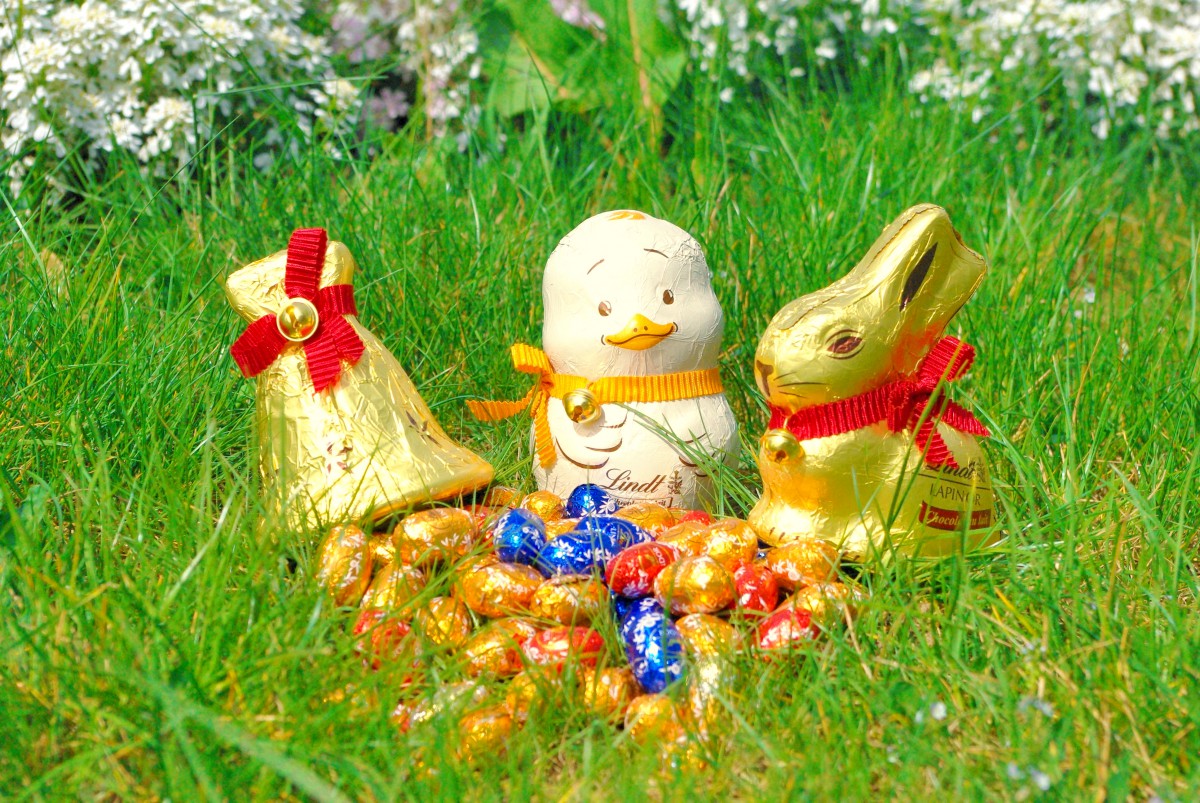
Easter In France Facts
Easter in France is a significant occasion celebrated by many of its citizens. The date of Easter changes every year and is dependent on the lunar calendar, falling between March and April. In France, the Monday following Easter is also recognized as a holiday known as Easter Monday.
Traditional Easter symbols in France include the ringing of church bells, the lighting of candles, and the exchange of chocolate Easter eggs. Another popular tradition is the Choix (meaning “choice”) ceremony, in which a godparent chooses an Easter egg for their godchild.
Common Easter foods in France include roasted lamb with vegetables, chocolate bunnies, and hot cross buns. However, the most significant Easter dish is the L’Agneau Pascal, or Pascal lamb. This dish symbolizes the sacrifice of Jesus Christ and is traditionally served on Easter Sunday.
French Easter celebrations have remained closely connected to Roman Catholicism, with many religious processions and ceremonies held throughout the country. However, there are also festivities that do not have religious connotations, such as the Easter egg hunts and parades.
Contrary to popular misconceptions, French Easter traditions do not involve the Bunny or Easter baskets. Instead, the focus is on the religious significance of the occasion and the celebration of the sacrifice and resurrection of Jesus Christ.
In summary, Easter is a significant occasion celebrated in France with many traditional symbols, foods, and ceremonies. It remains closely connected to Roman Catholicism but also includes non-religious festivities such as egg hunts and parades.

French Easter Vocabulary
If you’re planning to spend Easter in France, it’s useful to know some French Easter vocabulary so you’ll be able to understand and communicate with locals. Some of the most common French Easter terms include “Pâques” (Easter), “le Vendredi Saint” (Good Friday), and “le Dimanche des Rameaux” (Palm Sunday).
For those who are interested in learning about French Easter traditions, it’s also good to know words like “chasse aux oeufs” (egg hunt), “Pâques fleuries” (flower-decorated Easter), and “L’Agneau Pascal” (Pascal lamb), which is a traditional dish served on Easter. Additionally, there’s “mardi gras” (Shrove Tuesday), “mercredi des Cendres” (Ash Wednesday), and “dimanche des Rameaux” (Palm Sunday).
Having a basic understanding of French Easter vocabulary will help you participate in local festivities and communicate with natives. Whether you’re planning to attend a “chasse aux oeufs” or indulge in “L’Agneau Pascal,” knowing French Easter terms will elevate your experience and allow you to fully immerse yourself in the traditions of this rich and vibrant culture.
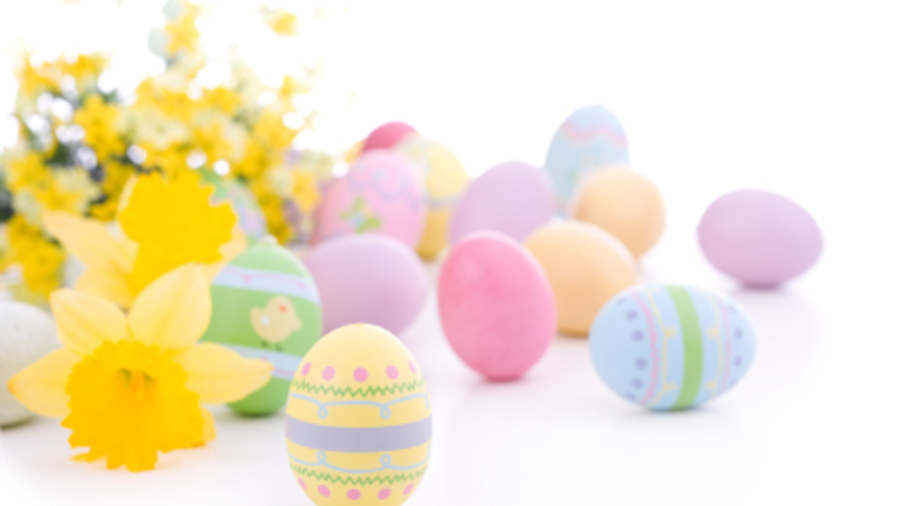
Interesting Facts About Easter Monday In France
Fun Trivia, History, Origins & Traditions
Easter, a Christian holiday celebrating the resurrection of Jesus Christ, took place on the third day after his crucifixion. 40 days before Easter, Christians follow Lent (which is supposed to be 40 days of prayer) of penance and fasting.
What are the origins of the Easter Celebration?
In France, the calendar celebrates Easter, that is to say, the death and resurrection of Jesus, even though the Jewish Passover feasts also take place at the same time and have influenced many of the Christian traditions.
Easter History Facts – Originally the Jewish Passover is celebrated in spring with the feast of the paschal lamb. They sacrificed a lamb and used its blood to drive evil spirits away from homes and protect the family. It’s also called the feast of unleavened bread.
Subsequently, the Passover became the feast of the liberation of the Hebrew people who had fled Egypt to escape slavery. For Passover, it was then customary to make a pilgrimage to Jerusalem to sacrifice a lamb in the temple and eat it with the family.
Jesus, as it is said to die during the celebration of Passover. Today for Passover, Jewish families continue to eat unleavened bread, a reminder that the escape from Egypt was made in haste and misery.
Good Friday Facts – In Christian families, the death of Jesus is celebrated on Good Friday and his resurrection on Easter Sunday, and it is still a tradition to eat the paschal Meal.
Easter is therefore a feast that origin is purely religious and is always celebrated on a Sunday, but the date of which varies between March 22 and April 25.
In France, the Monday following Easter Sunday is always a public holiday. It is also often the opportunity to have a family picnic. A good way to celebrate Spring as well.
Interesting Facts About Easter Monday In France For Kids
Fun Holy Week Facts For Kids- Easter Sunday ends the Holy Week. During this week, from Thursday to Saturday, church bells are not rung as a sign of mourning for what is believed to have happened to Christ. The children are then told that the bells have left for Rome to get blessed by the Pope.
On Sunday at the end of the Easter Vigil, they start ringing again. This tells the children that the bells, have now returned to churches, and flew over gardens, fields, and parks, dropping chocolate eggs, as well as all kinds of figures made out of chocolate.
Therefore, some very Interesting Facts About Easter Monday In France for kids is to tell them that the bells are those that bring chocolates to children in France! The children then go hunting for eggs, but also hens and chocolate bunnies. Easter is now associated with chocolate in every kid’s mind.
Others Are Now Reading: What Is France Known For – Fun Interesting Facts & Famous Places
Easter Facts For Kids
If you’re looking for some fun Easter facts to entertain your kids, look no further! In France, Easter is celebrated with lots of interesting traditions and customs that will surely capture their imagination. For example, did you know that instead of the Easter Bunny, the French believe that bells bring chocolate and candy to children on Easter? And if a baby is born around Easter, they might be named Pascal, which means “belonging to Easter.”
Another popular tradition is the Easter egg hunt, where children build nests in their backyards and a rabbit comes in the night to deposit colored eggs. If you’re in France during Easter, you’ll definitely want to check out the famous egg hunt at Château Vaux-le-Vicomte, which is the biggest and most popular one in the country.
But it’s not all about candy and eggs. For many French families, Easter is also a time to go to church and celebrate with a big meal. Traditional Easter foods in France include l’Agneau Pascal, a lamb dish that symbolizes new beginnings and renewal.
Overall, there are lots of fascinating facts about French Easter that kids will love learning about. From the meaning behind the holiday to the unique customs and traditions, there’s so much to discover and explore. So why not plan a special Easter-themed activity or meal with your family this year, and incorporate some of these French traditions into your celebration? It’s a fun and educational way to make the holiday even more special.

Easter Fun Trivia
Why do we celebrate Easter? Here are some Easter Fun Trivia for kids… and maybe even adults! Do you know where the Easter bunny comes from?
- The largest chocolate Easter egg was presented in 2011 in Italy. With a height of 10.39 meters and a weight of 7,200kg, he was taller than a giraffe and heavier than an elephant.
- In 2007, an egg covered in diamonds sold for almost £ 9 million. The egg is very special because every hour a jeweled rooster springs from the top of the egg flaps its wings four times, nods its head three times, and makes a crowing sound!
- It is assumed that the tradition of the Easter Bunny is of European origin. As well as many of the Easter customs such as wearing the Easter bonnet and the searching for Easter eggs.
- The English Easter term, ‘Easter’ is inspired by the word Eostre, or Eostrae, which is an Anglo-Saxon goddess name which is symbolized by the hare and the egg.
- Easter is the oldest Christian holiday.
- About 16 million candies are sold at Easter in the United States alone.
- The eggs hunting tradition during this time is an antiquated ritual that dates back to even before celebrating Easter. In fact, the sharing of eggs has anciently been held as a symbol of rebirth and fertility in many cultures around the world.
- Wearing new clothes at Easter is supposed to bring good luck for the coming year.
- The earliest Easter baskets looked like bird nests.
- White fleurs-de-lis are associated with the resurrection of Jesus Christ. Throughout this holiday, the petals are turned downwards as a mourning sign for what happened to Christ.
French Language-Related Easter Vocabulary
- Pâques = Easter
- La Pâque (Juive) = Passover
- Un gigot d’agneau = lamb roast
- Les cloches de Pâques = Flying Easter Bells
- Des oeufs en chocolat = chocolate eggs
- Un lapin = a rabbit
- La Careme = Lent
Fun Easter Facts For kids
- Easter is the Christian holiday that celebrates the resurrection of Jesus Christ and eternal life.
- Easter History Facts – Some people believe that the word Easter comes from the heathen Anglo-Saxon holiday which honors Ostera or Eostre the pagan goddess of spring which symbolized rebirth.
- Others believe that the word Easter comes from the old German word “Ostarun” which means dawn and white.
- Easter is celebrated at the end of Lent, the last day of the Holy Week.
- During Lent, the consumption of animal products, including eggs, is not allowed. The unconsumed egg becomes so many due to the lent. So, by the end of the holy week, hens usually had laid a lot, so at Easter, there are a lot of eggs to color and share in the celebration.
- The traditional word for painting Easter eggs is “pysanka”. It is a Ukrainian word for the traditionally-colored Easter egg according to folk designs.
- Trading painted eggs began in ancient civilizations including the Egyptians and Persians. The trade of eggs is like a symbol of fertility and new life.
Easter Bunny Facts
- The concept of the Easter bunny had its roots in Germany. The idea that the Easter bunny gives chocolate eggs arose in Germany in the Middle Ages.
- The Easter Bunny was brought to the United States by German settlers who moved to Dutch Pennsylvania in the 1700s.
- The Germans believed that the Easter Bunny was a white hare that left painted eggs for nice girls and boys on Easter day.
- Girls and boys wake up on Easter morning and build nests with twigs and stalks so that the Easter bunny or hare can lay the eggs. This is how the first Easter egg hunt began.
- The first edible Easter bunnies were made in Germany in the early 1800s. They were made from pastry and sugar.
- Pretzels were the snack that has been associated with Easter. It is held that pretzels are the oldest light meal
on the planet.
- Easter is the next most candy-consuming holiday following Halloween.
- Every day 5,000,000 marshmallow chicks and bunnies are made to prepare for Easter.
- 90 million Easter chocolate bunnies are made for Easter.
- Most people who eat a chocolate Easter bunny eat the ears first.
- Every year there is a great Easter scavenger hunt held at the Washington DC White House to celebrate Easter. The first Easter egg hunt at the White House dates back to 1878!
- Rabbits and hares were symbols of fertility.
- In folklore, the Easter bunny is a hare and not a bunny and it lays eggs. In spite of the fact that they can’t actually lay eggs duh.
A fun research showed that 76% of people eat first the ears of the chocolate bunny, 5% the feet, and 4% eat the tail first. What type of person are you?




One comment
Pingback: Eiffel Tower Facts for Kids - Learn About the Iconic French Landmark